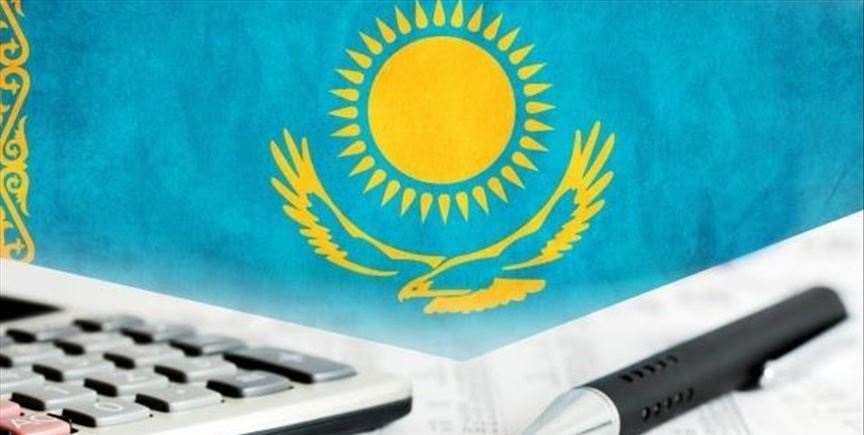Kazakhstan has a standard VAT rate of 12%. The amount of tax, the procedure for its calculation, and exemptions are all regulated by the Tax Code of the Republic. The essence of VAT is that it is added to the cost of a product and ultimately paid by the end consumer. In Kazakhstan, VAT is levied on goods, works, and services produced within the country, as well as on taxable imports (some categories may be exempt).
When VAT registration is mandatory
There are certain categories of businesses that are required to register as VAT payers:
- Legal entities that are residents of Kazakhstan;
- Legal entities that are non-residents but have branches or representative offices in Kazakhstan;
- Individual entrepreneurs (IEs) and individuals engaged in private practice.
However, entrepreneurs and LLC or LLP (Limited Liability Partnerships) are only required to register as VAT payers if their annual turnover exceeds a certain threshold. According to the current Tax Code, this threshold is 20,000 MCI (monthly calculation indices, which in 2023 amounted to 3,450 KZT). Therefore, the turnover threshold as of March 2025 is 69 million KZT.
What amounts are included in the turnover for VAT purposes
The Tax Code clearly defines what income and amounts are included in the turnover calculation. These include:
- Turnover from the sale of goods, performance of work, or provision of services (excluding those legally exempt from taxation);
- Turnover from the purchase of work and services from non-residents (according to Article 373 of the Tax Code);
- Amounts such as inventory balances, etc.
The turnover is calculated cumulatively from the beginning of the calendar year. If it is less than 20,000 MCI, VAT registration is voluntary.
In March 2023, legislative changes were introduced. In particular, they affected individual entrepreneurs using cash register systems (CRS). For them, the minimum turnover is calculated as 20,000 MCI plus the income processed via CRS in non-cash form.
What to do if the turnover threshold is exceeded
If a business exceeds the threshold, it must submit the appropriate application to the tax authorities at its place of registration. The law allows only 10 working days after the end of the month in which the turnover exceeded the set limit. This deadline must be closely monitored to avoid fines. The application can be submitted either in paper or electronic form. If you see that your turnover is approaching the threshold, it is advisable to apply for voluntary registration in advance to avoid heavy penalties later. An entrepreneur or legal entity is considered a VAT payer from the date the application is submitted.
Penalty for missing the deadline
According to the Administrative Code, the fine for missing the VAT registration deadline is 50 MCI. Additionally, the business must pay 15% of the turnover that should have been subject to VAT during the period in which the registration was overdue.
How Voluntary VAT Registration Works
Everything related to voluntary VAT registration is also regulated by the Tax Code. The process is almost identical to mandatory registration: a business must submit an application to the tax authorities either in paper form or electronically. The difference lies in the fact that legal entities can register voluntarily at the stage of their incorporation—when they are assigned a Business Identification Number (BIN). The registration date is considered either the date of application submission or the date the BIN is assigned.
Who Is Not Required to Register for VAT
The following are exempt from the obligation to register and pay VAT:
- Government institutions;
- Structural subdivisions of resident companies;
- Taxpayers operating under the Special Tax Regime (STR) for farming households.
Even if these organizations have a turnover exceeding 20,000 MCI (Monthly Calculation Index), they are still not liable for VAT.
Additionally, there are categories of taxpayers who are not allowed to register for VAT at all. These include:
- Individuals who have not registered as individual entrepreneurs or private practitioners;
- Non-residents who have not established a branch or representative office under Kazakhstani law;
- Bookmakers, casinos, and other representatives of the gambling industry;
- Companies that failed to submit a liquidation tax return in violation of Article 424 of the Tax Code.
If a company is required to register for VAT but fails to do so, it will be subject to relevant penalties. The State Revenue Authorities (SRA) monitor taxpayers whose turnover is approaching the established threshold. If the threshold is exceeded and no application is submitted within 10 working days, the SRA issues a formal notice five working days after the deadline expires. From the date the notice is delivered to the taxpayer, a 30-working-day countdown begins. If the application is still not submitted within this period, penalties apply, including the suspension of outgoing bank transactions on the company’s accounts.
VAT in Kazakhstan After Registration
Once registered, the taxpayer assumes new obligations. The procedure for calculating and paying VAT is outlined in Articles 421–425 of the Tax Code. VAT reports must be filed quarterly—within 45 days after the end of the reporting period (by the 15th day of the second month). Along with the report, the taxpayer must also submit registers of invoices—both those issued during sales and those received when purchasing goods, works, and services.
Current VAT Rates in Kazakhstan
The standard VAT rate is 12% in most cases, and 0% for operations listed in Chapter 44 of the Tax Code. The zero rate applies to goods exported from Kazakhstan (excluding scrap metal) and to services related to international transportation.
VAT must be paid to the state budget no later than the 25th day of the second month following the reporting period—i.e., 10 days after the filing deadline.
VAT Rates on Imports and Exports in Kazakhstan
Imports are subject to VAT under the general rules, i.e., at the standard rate of 12%. Exports, with the exceptions mentioned above, are taxed at a zero rate. However, the zero rate can only be applied by companies that export goods to countries outside the Eurasian Economic Union (EAEU). This right must be supported by valid contracts and accompanying shipping documents. Additional reports must be submitted to the tax authorities when importing goods.
Which Goods Are Exempt from VAT
The legislation on VAT-exempt goods is regularly updated. Given Kazakhstan’s strict protectionist economic policy, the list of VAT-exempt items is designed to support local producers. For instance, the sale of household appliances and electronics manufactured within Kazakhstan is exempt from VAT. Also exempt are goods, services, and works deemed socially significant—for example, the import of artwork for state museums, goods under charitable programs, and so on.
In 2023, the list was expanded to include chemical raw materials used for the production of pesticides and fertilizers, but only if there are no domestic equivalents or if local production is insufficient.
It is important to regularly monitor updates to this list, as changes are frequent.
How to Determine the Place of Supply for Goods and Services
Since exports are subject to a zero VAT rate, it is crucial to correctly determine the place of supply. This determination takes into account the country of origin of the goods. If the country is not part of the EAEU, Article 378 of the Tax Code applies. According to this article, Kazakhstan is considered the place of supply for services and works such as:
- Internet access;
- Licensing of software and other intellectual property rights;
- Consulting, auditing, advertising, marketing, and similar services;
- Agency services related to procurement based on contractual agreements, etc.
In general, the wording of the Tax Code remains somewhat vague, which allows for differing interpretations and necessitates prior legal consultation.
If a company does business with partners from EAEU countries, the place of supply is determined in accordance with Protocol No. 18 of the EAEU, as international law takes precedence over national law. However, there are no significant differences between the Protocol and the Tax Code in this regard.
VAT remains a vital source of government revenue in Kazakhstan, as in any other country. Therefore, the tax authorities strictly monitor its calculation and payment. Entrepreneurs should treat VAT matters seriously, as penalties for violations can be substantial.




